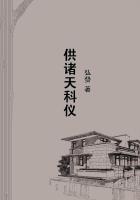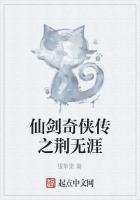The writer of this story, both because it moves his own heart, and because he wishes it to move that of others, begs you, dear reader, to pardon him, if he now briefly passes over a considerable space of time, only cursorily mentioning the events that marked it. He knows well that he might portray skilfully, step by step, how Huldbrand's heart began to turn from Undine to Bertalda; how Bertalda more and more responded with ardent affection to the young knight, and how they both looked upon the poor wife as a mysterious being rather to be feared than pitied; how Undine wept, and how her tears stung the knight's heart with remorse without awakening his former love, so that though he at times was kind and endearing to her, a cold shudder would soon draw him from her, and he would turn to his fellow-mortal, Bertalda. All this the writer knows might be fully detailed, and perhaps ought to have been so; but such a task would have been too painful, for similar things have been known to him by sad experience, and he shrinks from their shadow even in remembrance. You know probably a like feeling, dear reader, for such is the lot of mortal man. Happy are you if you have received rather than inflicted the pain, for in such things it is more blessed to receive than to give. If it be so, such recollections will only bring a feeling of sorrow to your mind, and perhaps a tear will trickle down your cheek over the faded flowers that once caused you such delight. But let that be enough. We will not pierce our hearts with a thousand separate things, but only briefly state, as I have just said, how matters were.
Poor Undine was very sad, and the other two were not to be called happy. Bertalda especially thought that she could trace the effect of jealousy on the part of the injured wife whenever her wishes were in any way thwarted by her. She had therefore habituated herself to an imperious demeanor, to which Undine yielded in sorrowful submission, and the now blinded Huldbrand usually encouraged this arrogant behavior in the strongest manner. But the circumstance that most of all disturbed the inmates of the castle, was a variety of wonderful apparitions which met Huldbrand and Bertalda in the vaulted galleries of the castle, and which had never been heard of before as haunting the locality. The tall white man, in whom Huldbrand recognized only too plainly Uncle Kuhleborn, and Bertalda the spectral master of the fountain, often passed before them with a threatening aspect, and especially before Bertalda; so much so, that she had already several times been made ill with terror, and had frequently thought of quitting the castle. But still she stayed there, partly because Huldbrand was so dear to her, and she relied on her innocence, no words of love having ever passed between them, and partly also because she knew not whither to direct her steps.
The old fisherman, on receiving the message from the lord of Ringstetten that Bertalda was his guest, had written a few lines in an almost illegible hand, but as good as his advanced age and long dis-would admit of.
"I have now become," he wrote, "a poor old widower, for my dear and faithful wife is dead. However lonely I now sit in my cottage, Bertalda is better with you than with me. Only let her do nothing to harm my beloved Undine! She will have my curse if it be so." The last words of this letter, Bertalda flung to the winds, but she carefully retained the part respecting her absence from her father--just as we are all wont to do in similar circumstances.
One day, when Huldbrand had just ridden out, Undine summoned together the domestics of the family, and ordered them to bring a large stone, and carefully to cover with it the magnificent fountain which stood in the middle of the castle-yard. The servants objected that it would oblige them to bring water from the valley below.
Undine smiled sadly. "I am sorry, my people," she replied, "to increase your work. I would rather myself fetch up the pitchers, but this fountain must be closed. Believe me that it cannot be otherwise, and that it is only by so doing that we can avoid a greater evil."
The whole household were glad to be able to please their gentle mistress; they made no further inquiry, but seized the enormous stone. They were just raising it in their hands, and were already poising it over the fountain, when Bertalda came running up, and called out to them to stop, as it was from this fountain that the water was brought which was so good for her complexion, and she would never consent to its being closed. Undine, however, although gentle as usual, was more than usually firm. She told Bertalda that it was her due, as mistress of the house, to arrange her household as she thought best, and that, in this, she was accountable to no one but her lord and husband. "See, oh, pray see," exclaimed Bertalda, in an angry, yet uneasy tone, "how the poor beautiful water is curling and writhing at being shut out from the bright sunshine and from the cheerful sight of the human face, for whose mirror it was created!"
The water in the fountain was indeed wonderfully agitated and hissing; it seemed as if something within were struggling to free itself, but Undine only the more earnestly urged the fulfilment of her orders. The earnestness was scarcely needed. The servants of the castle were as happy in obeying their gentle mistress as in opposing Bertalda's haughty defiance; and in spite of all the rude scolding and threatening of the latter the stone was soon firmly lying over the opening of the fountain. Undine leaned thoughtfully over it, and wrote with her beautiful fingers on its surface. She must, however, have had something very sharp and cutting in her hand, for when she turned away, and the servants drew near to examine the stone, they perceived various strange characters upon it, which none of them had seen there before.














